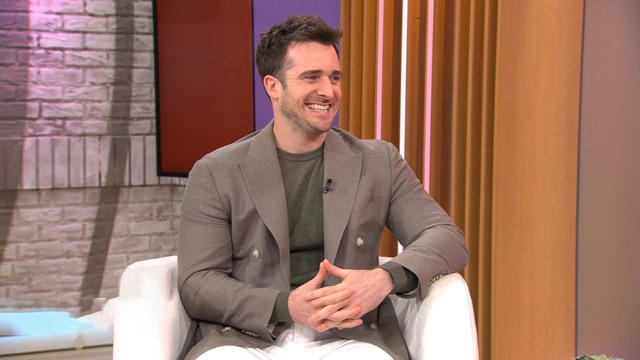“If He Wanted To, He Would”: Understanding the Implications and Realities of the Popular Phrase

The phrase “If he wanted to, he would” has become a popular adage, especially in the context of romantic relationships. It suggests that when a person, specifically a man, genuinely desires something, he will take the necessary actions to achieve it. This saying is often invoked to address issues of commitment, effort, and intention in relationships, implying that a lack of action or initiative is a clear indicator of disinterest or unwillingness. While the phrase may offer a straightforward approach to understanding human behavior, it also oversimplifies complex emotions and circumstances. This article delves into the implications of this phrase, explores its origins and usage, and examines the broader realities it often overlooks.
Origins and Popularity of the Phrase
The phrase “If he wanted to, he would” has gained traction in modern discourse through social media, self-help literature, and relationship advice columns. Its origins are difficult to pinpoint, but its rise in popularity can be attributed to its appeal as a simple, empowering statement. It resonates with individuals seeking clarity and affirmation in their relationships, providing a seemingly clear-cut answer to ambiguous situations.
Social Media and Pop Culture
Social media platforms like Instagram, Twitter, and TikTok have played a significant role in popularizing this phrase. Influencers, relationship coaches, and everyday users share anecdotes and advice centered around this mantra, often using it to encourage self-respect and self-worth. The phrase has become a hashtag, a meme, and a common piece of advice in comment sections and direct messages.
Self-Help and Relationship Advice
In self-help books and relationship advice columns, “If he wanted to, he would” is frequently cited as a guideline for understanding commitment and effort. Authors and experts use it to emphasize the importance of recognizing genuine interest and avoiding excuses for lackluster behavior. It serves as a litmus test for discerning the true intentions of a partner.
Psychological Underpinnings
The psychological appeal of “If he wanted to, he would” lies in its simplicity and directness. It reduces the complexities of human behavior to a binary framework: action versus inaction. This binary approach can be comforting, as it offers a straightforward method for evaluating a partner’s intentions.
Cognitive Biases
Cognitive biases, such as confirmation bias and black-and-white thinking, play a role in the acceptance and propagation of this phrase. Confirmation bias leads individuals to seek out and interpret information that confirms their preexisting beliefs, making them more likely to endorse the idea that a lack of action signifies disinterest. Black-and-white thinking simplifies complex situations into clear categories, which can be appealing in the often murky waters of romantic relationships.
The Need for Clarity
In the context of relationships, ambiguity and uncertainty can be sources of significant stress. The phrase “If he wanted to, he would” provides a clear and decisive answer to these uncertainties, offering a sense of control and empowerment. It encourages individuals to value themselves and avoid settling for less than they deserve.
The Reality of Human Behavior
While the phrase offers a straightforward lens through which to view romantic intentions, it often overlooks the complexities of human behavior and the multitude of factors that influence actions and decisions.
Emotional and Psychological Barriers
Emotional and psychological barriers, such as fear of rejection, past trauma, and low self-esteem, can hinder an individual’s ability to take action, even if they genuinely want to. These barriers can lead to inaction or seemingly contradictory behavior, complicating the simple dichotomy suggested by the phrase.
External Circumstances
External circumstances, such as work pressures, financial constraints, and family obligations, can also impact a person’s ability to act on their desires. These factors can create situations where a person genuinely wants to pursue a relationship or take a particular action but is unable to do so due to external limitations.
Communication and Misunderstandings
Communication plays a crucial role in relationships, and misunderstandings can arise from differences in communication styles, expectations, and cultural backgrounds. The phrase “If he wanted to, he would” does not account for these nuances, which can lead to misinterpretations of a partner’s intentions and actions.
Gender Dynamics and Societal Expectations
The phrase “If he wanted to, he would” is often gender-specific, focusing on male behavior in heterosexual relationships. This gendered aspect raises important questions about societal expectations and the pressures placed on men and women in the context of romantic relationships.
Gender Roles and Expectations
Traditional gender roles and expectations can influence how men and women approach relationships and express their intentions. Men may feel pressure to conform to societal expectations of being proactive and assertive, while women may be conditioned to expect men to take the lead in pursuing relationships. These dynamics can create unrealistic expectations and contribute to misunderstandings.
Toxic Masculinity
Toxic masculinity, which promotes harmful notions of male behavior and discourages emotional vulnerability, can prevent men from expressing their true desires and intentions. This cultural pressure can lead to behaviors that are misinterpreted as disinterest or unwillingness, reinforcing the oversimplified view promoted by the phrase.
Empowerment and Independence
On the positive side, the phrase “If he wanted to, he would” can encourage women to assert their independence and self-worth, reminding them not to settle for less than they deserve. It can empower individuals to prioritize their own needs and expectations, rather than waiting for someone else’s actions to validate their worth.
The Role of Communication
Effective communication is essential in any relationship and can often provide the clarity that the phrase “If he wanted to, he would” seeks to offer.
Open and Honest Dialogue
Encouraging open and honest dialogue between partners can help address misunderstandings and clarify intentions. Rather than relying on assumptions or oversimplified mantras, direct communication allows individuals to express their feelings, desires, and concerns openly.
Active Listening
Active listening, where individuals genuinely engage with and understand their partner’s perspective, is crucial for effective communication. By fostering a mutual understanding, partners can navigate the complexities of their relationship more effectively and make informed decisions based on a comprehensive view of each other’s intentions and circumstances.
Setting Boundaries
Setting clear boundaries and expressing personal needs and expectations can help avoid misunderstandings and promote a healthier relationship dynamic. By articulating what they want and need, individuals can create a framework for their partners to understand and respond to their desires more effectively.
The Balance Between Action and Empathy
While the phrase “If he wanted to, he would” emphasizes the importance of action, it is equally important to balance this perspective with empathy and understanding.
Recognizing Effort
Recognizing and appreciating the efforts that partners make, even if they fall short of expectations, can foster a more compassionate and supportive relationship. Understanding the reasons behind a partner’s actions or inactions can lead to more empathetic and constructive responses.
Addressing Unmet Needs
If a partner’s actions do not align with one’s needs and expectations, it is essential to address these issues directly and constructively. Rather than relying on assumptions or ultimatums, engaging in a thoughtful and respectful dialogue can help identify potential solutions and compromises.
Cultivating Mutual Respect
Mutual respect is the foundation of any healthy relationship. By valuing each other’s perspectives, experiences, and efforts, partners can build a stronger, more resilient connection that is based on understanding and collaboration.
Practical Applications and Scenarios
To better understand the implications of “If he wanted to, he would,” it is helpful to consider various practical applications and scenarios where this phrase might be invoked.
Long-Distance Relationships
In long-distance relationships, the phrase might be used to assess a partner’s commitment to maintaining the connection despite physical separation. While effort and communication are crucial in such relationships, it is also important to consider the logistical challenges and emotional strain involved. Understanding these factors can provide a more balanced perspective on a partner’s actions.
Dating and Courtship
During the dating and courtship phase, individuals might use the phrase to gauge a potential partner’s interest and investment. While it is reasonable to expect a certain level of initiative, it is also important to consider individual differences in communication styles, past experiences, and personal circumstances.
Established Relationships
In established relationships, the phrase might be used to address ongoing issues related to effort and commitment. While it can serve as a reminder of the importance of action, it should not be the sole metric for evaluating a partner’s intentions. Effective communication and mutual understanding are key to navigating these challenges.
Workplace Dynamics
Although the phrase is primarily used in romantic contexts, its principles can also apply to professional relationships. In the workplace, recognizing and addressing barriers to action, such as resource constraints or organizational culture, is crucial for fostering a productive and supportive environment.
Reevaluating the Phrase
While “If he wanted to, he would” offers a straightforward framework for understanding human behavior, it is essential to reevaluate and expand upon its implications to account for the complexities of real-life situations.
A More Nuanced Perspective
A more nuanced perspective involves recognizing that human behavior is influenced by a multitude of factors, including emotional, psychological, and external circumstances. By considering these factors, individuals can develop a more empathetic and comprehensive understanding of their partners’ actions.
Emphasizing Communication
Emphasizing the importance of open and honest communication can help address misunderstandings and foster stronger relationships. Rather than relying solely on assumptions, engaging in meaningful dialogue allows individuals to express their needs and understand their partners’ perspectives.
Encouraging Self-Reflection
Encouraging self-reflection and personal growth is also crucial for building healthy relationships. By examining their own actions, motivations, and expectations, individuals can develop a deeper understanding of themselves and their partners, leading to more informed and compassionate interactions.
Conclusion
The phrase “If he wanted to, he would” offers a seemingly clear-cut approach to understanding romantic intentions, emphasizing the importance of action and effort in relationships. However, it also oversimplifies the complexities
4o





